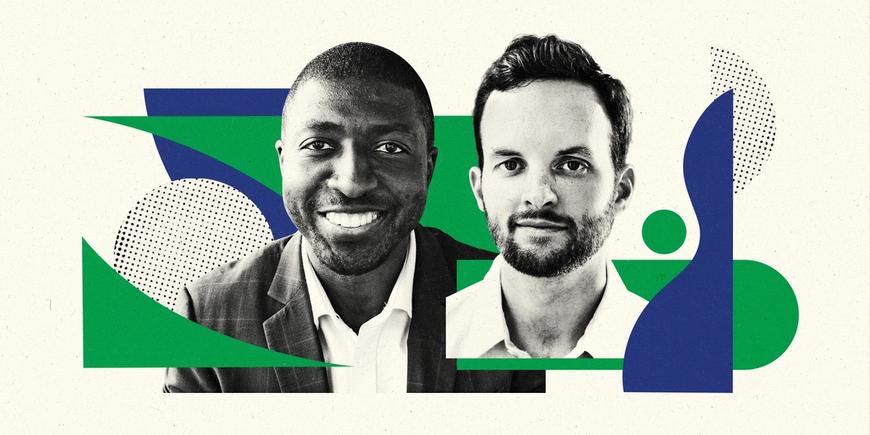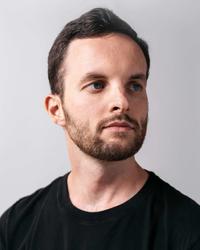RubiconMD’s Gil Addo on the Importance of Value-Based Care and the Future of eConsult Services
The CEO and Cofounder on how his grandmother inspired his career, the significance of providing quality medical care at a lower cost, and the future of virtual care.

Gil Addo is the CEO and Cofounder of RubiconMD, a digital health platform that gives patients access to specialty care at a lower cost. Founded in 2013, RubiconMD enables primary care clinicians to virtually access same-day insights from top medical specialists.
I sat down with Gil to discuss how his personal medical experiences shaped where he is today, the power behind working smarter rather than harder, and how Oak Street Health’s acquisition of Rubicon is paving the way for a successful future.
What's your healthcare origin story? What drew you into this world?
Both of my parents are immigrants: My father is from Ghana in West Africa and my mom is from Barbados in the West Indies. I grew up having a very clear view from both of them on what's different between healthcare in the U.S. and healthcare internationally.
One of the earliest experiences I had with those differences was when I was in middle school and my grandmother developed a brain tumor. She was in Barbados and she traveled to Boston for surgery and then spent more than five years going back and forth between the two places for the management and treatment of the tumor.
The challenge for people who are in places like Barbados is that you just don't have access to the same expertise in healthcare that you have in Boston. That made me really passionate about a career where I could have an impact in improving access and trying to change the system.
I ended up studying Biomedical Engineering at Yale. During my time there, I got very deep into research and managing a lab, and was working on some really cool treatments for drug delivery for specific pathways. I got into the weeds of it and started to lose sight of getting these things commercialized. How do you get them to people who really need them? I wanted to understand and experience that.
After college, I was accepted into Harvard for my MBA. I also worked for Xerox for a few years and did investor relations. I got the opportunity through business school to really go deeper into the meaning of commercialization and treatments that are needed for patients. I then went into consulting for a couple of years and worked at a firm called Putnam Associates. They allowed commercialization and work in the life sciences space. I got to work on some really cool and novel treatments and drugs and learn how they get to market.
In 2013, I left there with an idea for how you could provide better access to care. And that became RubiconMD. It started out really simple. One of the ideas that we were really clear on was that primary care needed to be the foundation for the healthcare system going forward. We wanted to build something that enabled people and communities to get access to the right expertise.
You entered really early in this world. Are there any learnings or thoughts about that as you reflect back on your nine-year journey today?
The most obvious one is that we were defining the space. So every conversation was explaining to people what this is, what it can do, and what the power of our eConsult interaction was. Now we do less of that. eConsult and Telehealth is now a defined space, which is really cool. So now we’re not so much creating the market as we're helping to show how we're different.
A lot of our policies have changed and we've spent a lot of time from 2000 to 2018 working with CMS and other regulatory bodies. There’s now a regulatory framework and reimbursement codes. I don't think we've achieved exactly what's needed to truly make it commercialized through the reimbursement mechanism, but there's been a lot of broad success there and it's helped with the dissemination of eConsult and the improvement of access.
I also think we’ve been able to prove that there’s a real market for this. We've been able to invest significantly more as we've gotten traction and success, and the things that we were promising people have been executed.
What has been the hardest part of this journey? What would you go back and do differently if you had the ability?
There are a lot of mistakes that we made and many things we could have done differently. I'd say probably the most impactful thing would've been to prioritize the groups that were ready and were in value-based arrangements. Having early customers and traction is really important. We got a lot of really important traction that made us marketable and allowed us to raise money, but that also probably pulled us away from the roadmap that would've allowed us to scale fastest.
When you go and work inside large health systems, they have a tendency to do things that can make you a custom dev shop and they can do a lot of things that may not be as scalable. When eConsult was early and still undefined, I think that hurt us. Same thing in a different way with health plans. They just have needs, they're further away, and they have to do things tied to billing and claims. Those things don't drive any real value for patients.
When you do things for people that are in value-based arrangements, you're delivering value for patients through clinicians. I think if we had focused there earlier, that would've been better for accelerating what turned out to be the thing that made the most sense.
Why are groups with value-based care agreements such a good fit? Are you still focusing heavily on that population or on that client set?
Value-based care has the incentive that you are getting paid not to deliver more care, but to deliver better care at a lower cost. Groups and organizations in value-based arrangements essentially provide care for a specific population of patients at a flat rate. The fundamental reason why it works so well for us is because it aligns the clinical with the financial. It’s very easy for us to sell and convince payers and insurers of the value that RubiconMD generates. It's also very easy to convince clinical folks of the value that it generates, but the incentives in a fee-for-service world are actually separating the two. We end up with a very aligned set of individuals and it's more cost-effective, there is better rollout, and the outcomes are greater.
As you think about the coming years of Rubicon, where are you investing? Where are you spending time?
I'd say where we're going is we're doubling down on being able to support value-based care really well. We want to evolve to become a specialty care partner for any risk-bearing entity. That means that people think about us as an eConsult business currently, but over the next year or two they’ll begin to just see us as virtual-first specialty care. Anybody that's looking to deliver value-based care will be that partner that will allow you to bring specialists to support, but it'll be all virtual.
With that, what we’re going to be able to do is bring in specialists to become part of the care team. It's not just a single eConsult interaction where you have one specialist response. We will help primary care teams to manage patients over time and our specialists will be a part of the care team. They'll keep up with patients and their increasing risks and help them manage costs. What’s really powerful is that we can do it in a multi-specialty way. We can do it so that you have the primary care clinician, the cardiologist, the endocrinologist, and the psychiatrist, and they're all interacting, interfacing, and dialoguing on that patient's care. That's really unique and really powerful to be able to deploy for any patient who's in a value-based arrangement.
You were acquired by Oak Street Health in 2021. How much has that turbo-charged reaching your vision?
It's done a lot. This allows us to move closer to patients and innovate faster in a way that we hadn't been able to as a standalone entity. Many of the ideas that I mentioned have been tested with Oak Street and then we've used that to be able to roll it out to the broader base. Oak Street has been a longstanding partner and so their acquisition just gave us more fuel. They've been able to demonstrate a successful model of value-based care and how to scale it across the country in a way that the markets have responded to. I think the best is yet to come.
As the world continues to shift toward value-based care, what are the other areas where there are still opportunities for growth or potential new companies?
I think that there's a lot of opportunity right now in being able to deliver services to support value-based care from a social determinants of health perspective. There are large companies there, but nobody's figured out how to truly integrate the social with the physical and the mental health and to do that in a way that gets reimbursed. I think there's an opportunity, as people are trying to transition from fee-for-service to fee-for-value, to be able to provide support on the social side and integrate that into the clinical side in a scalable way.
We spend a lot of time thinking about specialties and we are very broad. We cover 140 specialties and subspecialties and, eventually, people that need far more specialized and directed care in a specific area are going to need to go someplace that's set up and constructed for that. I think there's still a lot of innovation and opportunity in those verticals.
